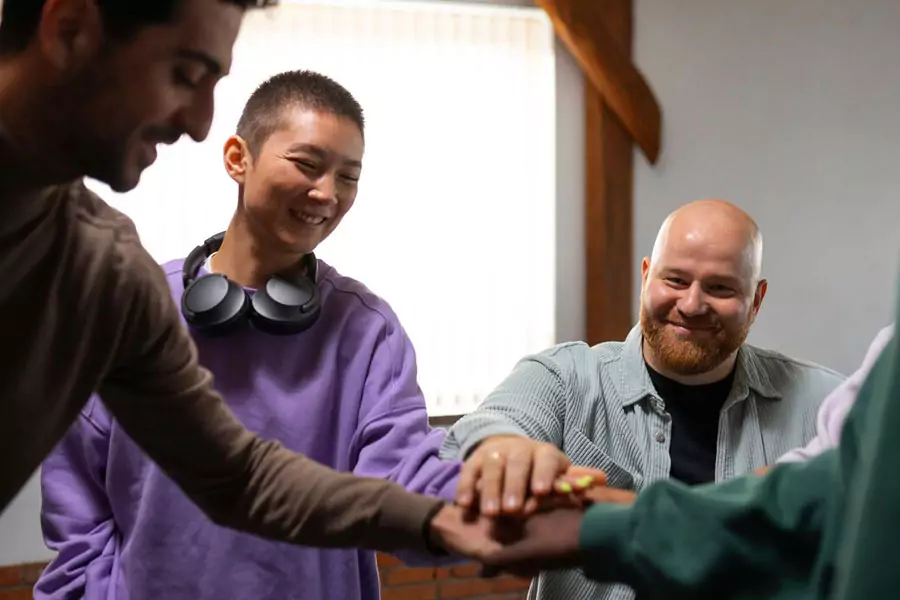Faith-Based vs. Secular Recovery: Which One Should You Choose?
Conquering an addiction is an intensely individual undertaking; no two recovery journeys sound the same. Background, principle, trauma, and life experiences of individuals differ so completely that universal prescriptions often fall flat. That’s why choosing the right rehab program becomes essential for achieving long-term recovery. One of the biggest decisions individuals have to make is the choice between a faith-based and secular addiction recovery approach.
Archway Recovery Homes frames the matter in simple terms: recovery means far more than detoxing from substances. It is a deeply personal and transformative journey. So, how can one decide between faith-based and secular recovery? Exploring both options directly can make finalizing one easier.

What Is Faith-Based Recovery?
Faith-based recovery programs weave spiritual beliefs and practices into almost every step of the recovery process. These programs echo the central idea of surrendering oneself to a higher power. In doing so, the approach seeks to heal not only physiology and psychology but also the deeper, less visible life force many people call spirit.
These programs usually offer:
- Scripture-based counseling
- Daily prayer or meditation
- Church attendance or Bible studies
- Group sessions emphasizing spiritual growth and personal responsibility
- A focus on finding a sense of purpose through faith
Faith-based recovery is not just for one religion. Some programs are based on Christianity, while others may use ideas from different spiritual beliefs. What they all share is the belief that growing spiritually is important for healing from addiction.

What Is Secular Recovery?
In contrast, secular addiction recovery programs leave religion altogether at the door. These programs lean on evidence-based practices, including therapies such as cognitive behavioral therapy (CBT), motivational interviewing, and mindfulness techniques.
Secular recovery programs focus on:
- Scientific and psychological aspects of addiction
- Medical support and clinical interventions
- Building a strong support system through peer support and group therapy
- Encouraging personal growth and self-efficacy without the need for a higher power
Secular recovery is best for people who prefer practical methods based on research or those who do not follow any religion.
Key Differences Between Faith-Based and Secular Recovery
Here are some of the primary differences between faith-based and secular recovery:
1. Spiritual vs. Clinical Focus
- Faith-based recovery programs anchor their work in spiritual growth, moral conduct, and connection to a higher power.
- Secular addiction recovery programs lean on scientific approaches like cognitive behavioral therapy, neuroscience, and emotional-regulation techniques.
2. Support Structures
- In a faith-based recovery program, the support system consists of pastors, church members, or fellow believers who offer guidance from within shared convictions.
- In secular recovery programs, peer support usually comes from individuals who are also on the same addiction recovery path but don’t invoke religious ideology.
3. Therapeutic Approach
- Faith-based recovery programs may feature pastoral counseling, prayer groups, and devotional readings drawn from sacred texts.
- Secular recovery programs rely on licensed therapists, evidence-based group therapy, and individualized evidence-based practices.
4. Sense of Purpose
- In faith-based recovery, a sense of purpose arises through acts of service, spiritual connection, and active involvement in a religious community.
- Those enrolled in a secular recovery program often define purpose via personal growth, life goals, career development, emotional balance, and the pursuit of stable, substance-free lives.
How to Decide Which Program is Right for You
The following factors will help you choose the right recovery program:
1. Consider Your Beliefs
Many people find comfort in linking their recovery to the beliefs that guide their lives. A faith-based program often weaves prayer and scripture into the daily routine, allowing spiritual habits to resurface alongside sobriety. Others lean on research-driven models that leave faith and ritual aside. For them, a strictly secular recovery program, anchored in clinical data and behavioral science, may feel more genuine.
2. Look at the Program Structure
Assess the way a program offers support. Does it align with your expectations for therapy, community, and aftercare? Whether it’s through group therapy, pastoral counseling, or CBT, the tools used should feel right for you.
3. Reflect on Your Past Experiences
People are not blank slates. Recollections from previous stints- both positive and negative- serve as free market research. Identify the elements you tolerated and the ones you begged to escape, then shop with that self-knowledge in hand.
4. Talk to a Recovery Specialist
Recovery specialists at Archway Recovery Homes can help you weigh the pros and cons of both faith-based and secular recovery programs. Choosing the right path is not about picking one over the other, but it is about choosing what helps you heal.
Can You Blend Both Approaches?
Absolutely. Recovery centers such as Archway Recovery Homes offer hybrid models that bring together time-tested evidence-based practices and volunteer-led spiritual practices. This flexibility gives people room to pursue soulful questions without sidestepping evidence-based psychological healing.
For example, in a typical blended approach, you might see Bible study during morning coffee, followed by CBT modules, a guided mindfulness break, and an evening circle weighing grace, forgiveness, and personal responsibility. Some residents gravitate toward the faith-inflected groups; others prefer purely secular peers. The combination allows each person to mix philosophy with practice in whatever proportions they find helpful.

The Role of Community in Recovery
No matter which path you choose, connection matters. Research shows that prolonged solitude feeds addiction and stifles recovery, while an engaged community can offer the accountability and empathy that rebuilds trust in oneself and others. At Archway Recovery Homes, staff members quietly cultivate a family-like atmosphere where every voice, whether it’s phrased in scriptural language or plain science. Residents routinely lean on one another, swap stories over shared meals, and celebrate small wins that might otherwise pass unnoticed.
Your Journey, Your Choice!
Choosing between faith-based and secular recovery is never just a checklist; it strikes at the marrow of what you believe. Whether the road you choose leans on scripture, reason, or a mix of both, the goal remains the same: lasting change, genuine peace, and the tools to overcome addiction.
Archway Recovery Homes does not steer you toward a single compass. Our counselors and peer mentors walk alongside clients who find strength in prayer, in research, or anywhere in between. Personal values matter here, and the program is patched together to match them.
Also read: Holistic Addiction Treatment: A Path to Recovery and Healing


